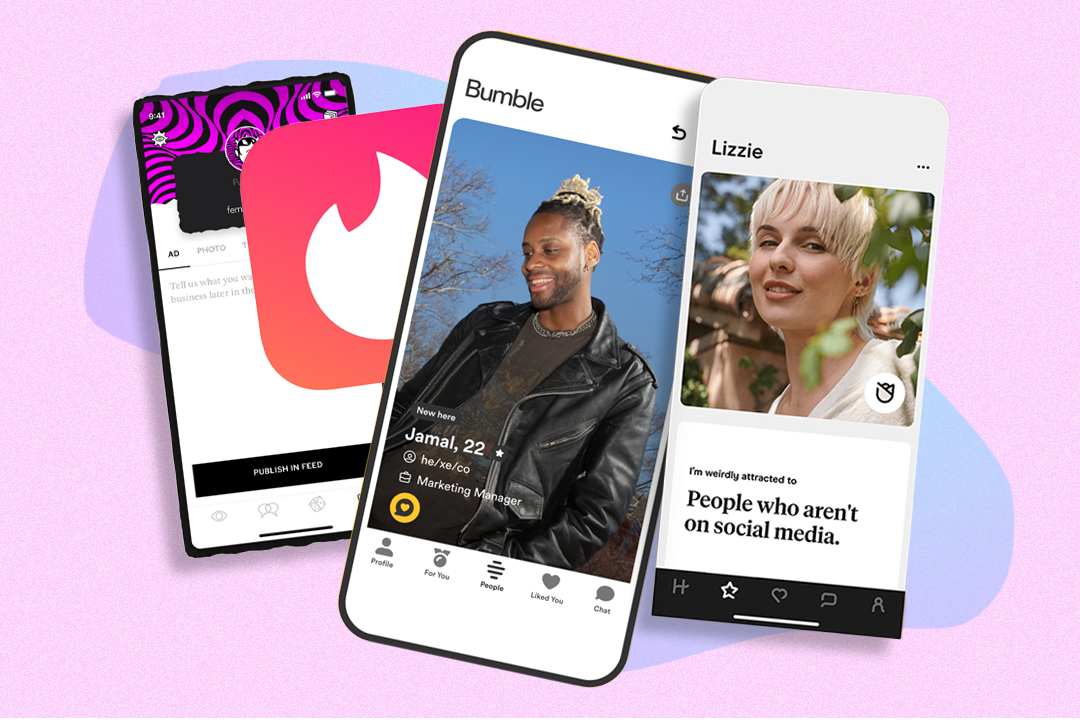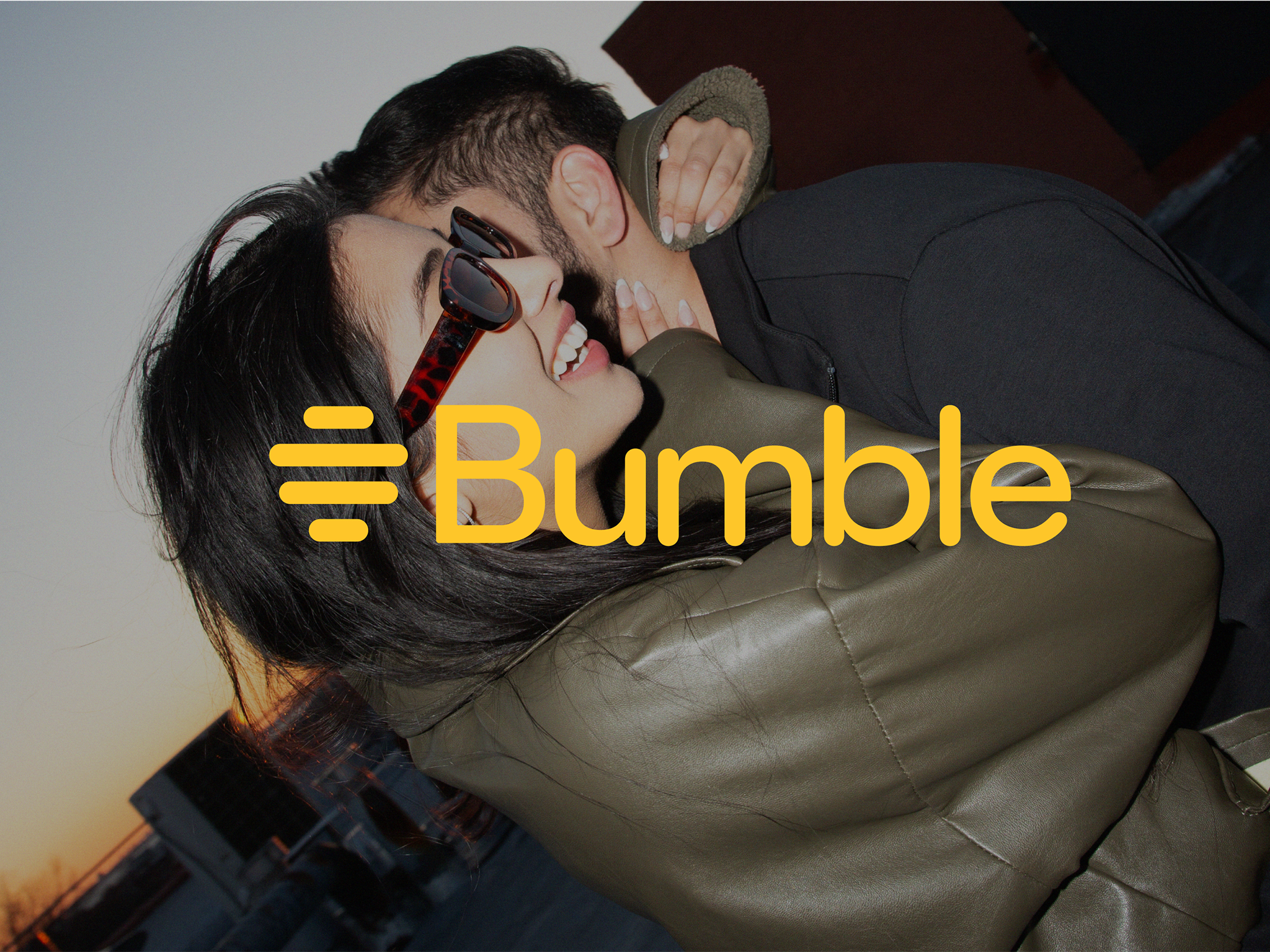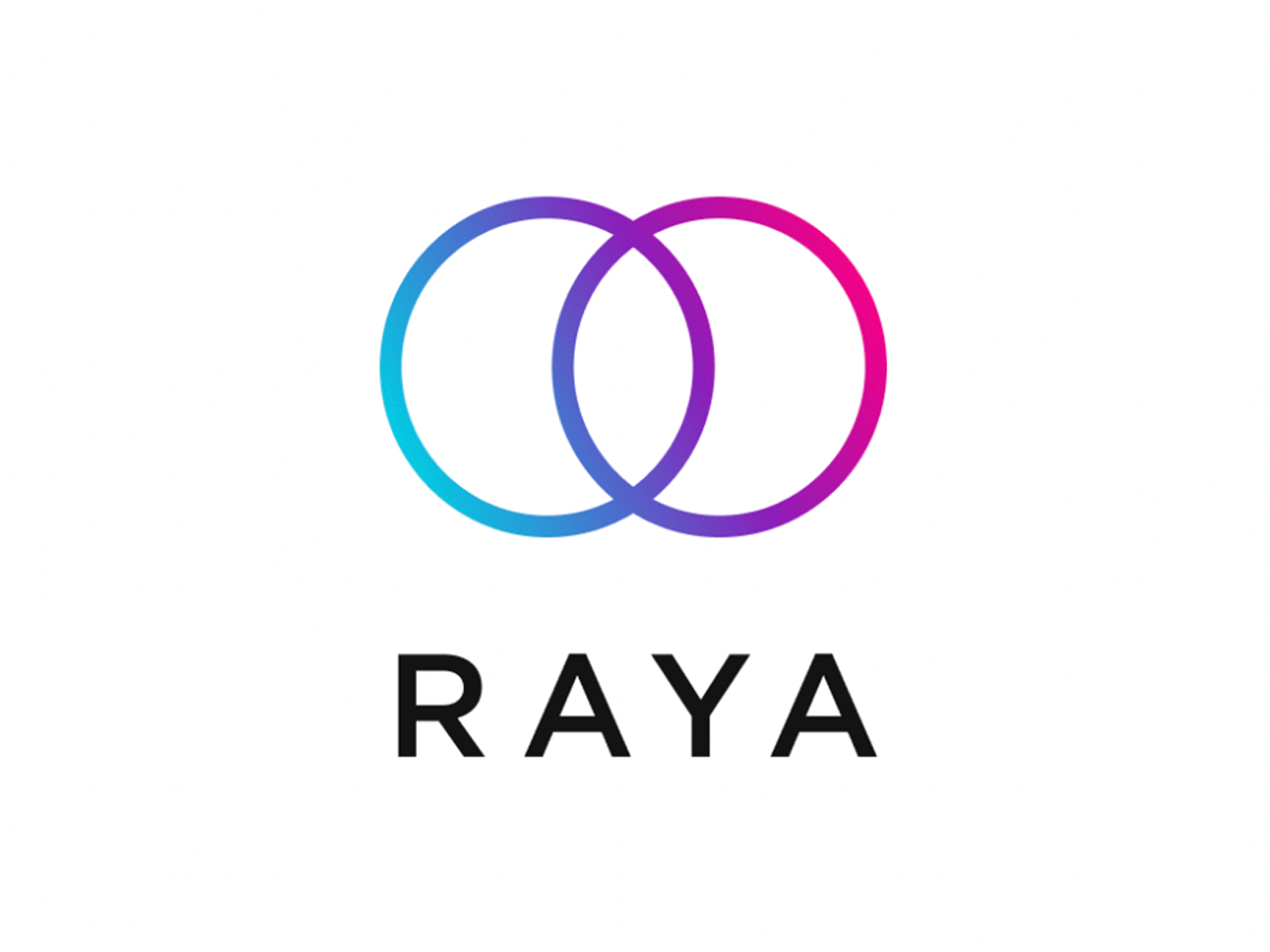The Independent's journalism is supported by our readers. When you purchase through links on our site, we may earn commission. Why trust us?
The best dating apps you’ll actually want to use in 2024, from Hinge to Her
It’s time to get lucky in love, with a little help from these top-rated dating apps

Your support helps us to tell the story
From reproductive rights to climate change to Big Tech, The Independent is on the ground when the story is developing. Whether it's investigating the financials of Elon Musk's pro-Trump PAC or producing our latest documentary, 'The A Word', which shines a light on the American women fighting for reproductive rights, we know how important it is to parse out the facts from the messaging.
At such a critical moment in US history, we need reporters on the ground. Your donation allows us to keep sending journalists to speak to both sides of the story.
The Independent is trusted by Americans across the entire political spectrum. And unlike many other quality news outlets, we choose not to lock Americans out of our reporting and analysis with paywalls. We believe quality journalism should be available to everyone, paid for by those who can afford it.
Your support makes all the difference.In 2024, dating apps don’t exactly have the best reputation. Much like Marmite, they are either loved or hated – which camp you fall into will inevitably depend on how successful you’ve been while using them. As anyone who’s single will know, today’s dating landscape is no picnic. With mixed messages, the rise of ghosting, and endless ways to digitally interact with someone (Instagram DMs, WhatsApp, iMessage, etc), the opportunities to connect and forge intimate bonds today are truly everywhere.
This is a net positive – thanks to apps, we now have the ability to meet more people than ever before, right from the comfort of our living rooms. However, it can also make it harder than ever to know where to begin, particularly if you’re newly single and have yet to dip your toe in the murky waters of the dating app scene. The good thing is, today, there are plenty of apps to choose from, to help you narrow down your search for an ideal partner.
Which app you choose will depend on a number of factors, ranging from what you’re looking for (some apps are better suited to relationships, while others are best for hookups) to who you’re interested in (some apps are far more LGBT+ friendly than others). Meanwhile, others will have a broader user-base, while some will target a specific niche (if you’re a celebrity, best to head over to Raya).
Nowadays, safety is also a major concern among users of dating apps, with many platforms incorporating new features to promote just that. On Bumble, for example, there’s specific technology to combat cyberflashing, while, on Tinder, you can share the location of your date with friends and family members.
With all that in mind, and without further ado, from the mainstream to the incredibly specific, here’s our pick of the best dating apps to help you navigate the treacherous path to true love.
The best dating apps for 2024 are:
- Best app for casual dating: Tinder
- Best dating app for relationships: Hinge
- Best dating app for safety: Bumble
- Best app for influencers and very online people: Raya
- Best app for local dating: Thursday
- Best dating app for hookups: Feeld
- Best LGBT+ dating app: Her
- Best dating app for sex positivity: Pure
Tinder: Free, with additional pay-for features

- Available: Via the Apple App Store and Google Play
- Price: Free, upgraded features from £29.99 per month
It’s one of the best-known dating apps in the game, and for good reason. Launched in 2012, Tinder has come a long way since it changed the way we date forever. As one of the first major dating apps, it pioneered the swiping feature that many apps now use, allowing users to say “yes” and “no” to potential matches with a quick swipe of their thumb. Back then, profiles pretty much consisted of just a few photos alongside someone’s name and age. Now, Tinder is entirely different, having undergone several rebrandings.
The swiping tactic still exists and it has become far more inclusive, giving users multiple options of genders and sexualities to choose from. In 2022, Tinder claimed one in five of its matches were among LGBT+ users. It also offers photo verification, giving users the opportunity to verify their identity to one another and confirm they are who they say they are. A new feature also allows users to share the location of their dates with friends and family, which will inevitably prove useful to people who do this anyway.
On your profile, you can state your relationship goals in addition to your interests, making the app particularly friendly to those looking for casual flings but also those looking for something more long-term. Tinder also offers a “Vibes” feature that gives users the chance to answer a personality quiz, the results of which can then be shown to other uses with the feature enabled on your profile.
You don’t need to sign up to the paid features to get the best out of Tinder but, if you do, you can enable a wide range of other features that will help you on your dating journey. For example, there’s “super likes” (where you can like someone and your profile will be prioritised on that person’s feed) and “passport”, which enables you to see matches around the world. You can also boost your profile, so it comes up on more people’s feeds, as well as enabling read receipts and seeing which users have liked you. The upgraded features start at £29.99 for a month.
Hinge: Free, with additional pay-for features

- Available: Via the Apple App Store and Google Play
- Price: Free, upgrade for £14.99 per week
A major competitor to Tinder, Hinge has long been marketed as “the app designed to be deleted”, ie, the one that will actually help you find a lasting relationship. As with all apps, though, its success will depend on how you use it. Hinge is free to use and offers users the unique “prompt” feature on their profiles, which enables you to answer three questions ranging from your childhood crush to your most irrational fear.
You can also add your political views, whether or not you drink, if you want children, and what kind of relationship you’re looking for. You can also verify your identity and link your Instagram account to your profile. Another unique feature is being able to message people you’ve liked – you can write a small response to them and attach it to a particular prompt or photo on their profile, making it easier to start conversations.
While you can get a lot out of Hinge by using its free features, paid-for users can benefit from being seen by more users at once, by upgrading to Hinge+ from £14.99/week, while HingeX (from £24.99/week) gives you the chance to send unlimited likes.
Bumble: Free, with additional pay-for features

- Available: Via the Apple App Store and Google Play
- Price: Free, £11.16 per month for Bumble Boost
The original feminist app that enables women to “make the first move”, Bumble has evolved a lot since its early days. It burst onto the scene thanks to ex-Tinder co-founder Whitney Wolfe Heard, who famously launched the app after resigning from Tinder, where she eventually filed a lawsuit for sexual harassment. With Bumble, the plan was to give women control over their dating lives – in the first versions of the app, only women could message first when they matched with a man. If they didn’t within 24 hours, the match would expire.
Today, the platform is a little different. In heterosexual partnerships, it’s still women that have to make the first move, though the app has since extended its services and made it more inclusive for LGBT+ users, with both users in same-sex matches encouraged to message first. A new feature also enables female users to add questions to their profiles that male users can choose to respond to, meaning they don’t necessarily have to message first.
The profiles aren’t quite as detailed as some of the other apps – it’s quite picture-led on Bumble – so it’s not necessarily the best for long-term relationships, and you need to be quick, given the 24-hour expiration limit.
The best thing about Bumble, though, is its safety features. Not only can users make video calls with matches, giving you the chance to verify who they are and how they’re coming across before you meet them, it also has a detector that will automatically blur out any explicit photos sent by matches. Additionally, there are specific bans on guns, hate speech, fetishisation and sexual harassment on the app that make it far more pleasant and safe to use. For £11.16 per month, you can upgrade to Bumble Boost, which enables you to see which users have already liked you.
Raya: From £19.99

- Available: Via the Apple App Store
- Price: From £19.99
The Soho House of dating apps, Raya is notoriously secretive about its application process – yes, you have to apply to get onto the app. Generally speaking, if you know someone who is on it, they can recommend you and then you’re on. Operating on a subscription basis, members can either purchase a one-, six- or 12-month membership that gives them access to Raya’s extensive celebrity and social media influencer-heavy roster of users – Paul Mescal is rumoured to have been a member at one stage.
There are a lot of athletes, entrepreneurs and CEOs, making it a worthwhile networking tool as much as it is a dating one. The profiles are more appearance-heavy than others, however, with limited options to add details (such as values, beliefs and interests) about who someone is. It’s also very hot on identification – users are carefully vetted to ensure no one can use a fake photo. Plus, matches expire in 10 days, which can give you enough time to consider whether or not you want to speak to someone while also putting a tiny bit of pressure on it to motivate you to do so.
Of course, this app is also brilliant for those looking for a bit more privacy around their dating experience; users who publicly mention Raya or post about it on social media risk getting banned.
Thursday: Free, with additional pay-for features

- Available: Via the Apple App Store and Google Play
- Price: Free, VIP membership from £14.99 per month
This is a dating app with a difference. Unlike other apps here, Thursday prioritises IRL meetings, which might sound odd for a dating app but, essentially, the way it works is you can only access the app one day a week, on (you guessed it) Thursdays. The idea is you open the app that morning or afternoon and can swipe through local single people, with the view of talking to them there and then, swapping numbers, and, ideally, arranging a date.
But you have to be quick, because, by the end of the day, the matches are all wiped. It’s a unique premise that has proven helpful for many single people, as it forces them into action. You’re also less likely to get ghosted because chances are, if someone is on the app on that day, they’re keen. It’s not for everyone, of course, as some people might prefer to take their time with the online dating experience. For those who need a gentle nudge to get going, however, it can be great.
The best thing about Thursday, though, is that it hosts real-life mixers for singles, too. Targeted for specific ages, people gather in various bars in cities across the world, the idea being that everyone there is fully single and ready to mingle. With cheap entry fees to the mixers, you can also get the chance to talk to people you’ve already seen on the app, giving you a major advantage.
Starting from £14.99 per month, VIP memberships offer users the chance to remove restrictions on how many people you can like and view.
Feeld: Free, with additional pay-for features

- Available: Via the Apple App Store and Google Play
- Price: Free, £17.99 per month for Feeld’s Majestic membership
You’ve probably heard of Feeld. Some may refer to it as the “threesome app” (it originally started as a dating app for people looking for three-ways), while others just call it the “sex app”. In fact, it is neither, and recently underwent a major rebranding, to widen its appeal to those looking for relationships. Historically, though, Feeld, which was launched in 2014, is known as the platform people go to when they want to find someone for the night rather than for the rest of their lives.
It’s photo-heavy, offering details only to those who swipe up to look. What’s unique about it is that, unlike other apps, identity is not prioritised here. In fact, it’s almost actively discouraged – with some users not including photos of their faces in their profiles and going by initials rather than names, or vowing to only share photos of what they look like with matches. Anonymity thrives on this app, where people prioritise their sexual kinks above all else. There’s an entire section dedicated to just that – and the selection is vast, ranging from types of threesomes to specific forms of BDSM. You’ll find couples on here, too, which isn’t often the case with other apps.
From £17.99 per month, users can unlock Feeld’s Majestic membership option, which means they can send unlimited likes and see which users have liked them. However, you can still get a lot out of this app by using its free features.
Her: Free, with additional pay-for features

- Available: Via the Apple App Store and Google Play
- Price: Free, additional features from £13.99 per month
Her is the go-to app for LGBT+ women and nonbinary people. Having been launched by Robyn Exton in 2013 out of frustration surrounding the lack of safe queer online dating spaces, Her now has more than 13 million users and is used in more than 125 different countries. It’s a very inclusive platform that offers unique social communities via chat rooms dedicated to specific topics, which range from “astrology” to “tarot”. This also enables users the chance to connect with one another on more platonic levels, or to start building friendships with the view of developing them into something more romantic.
There are endless labels for people to use to describe their gender and sexuality but users can also include their views on drinking, politics, and whether or not they want children. You can also add pins to your profile, to declare which subjects you’re interested in discussing.
Unlike other dating apps, Her doesn’t allow you to swipe right on someone without scrolling all the way through their profile – it’s only when you get to the bottom, after reading the rest of their information, that you get the option to say “yes” or “no” to someone, hopefully encouraging more considered decisions.
For paid users (subscriptions start at £13.99 per month), the app also comes with a discover page, which means you can see everyone who’s liked you. If you go for the most expensive membership, you can enable read receipts and see which users are nearby.
Pure: Free for three days then £22.99 per month

- Available: Via the Apple App Store and Google Play
- Price: Free for three days then £22.99 per month
Similar to Feeld, Pure offers users the chance to browse anonymously, requiring them to share only their gender and sexual orientation. Launched in 2013 by Ukrainian entrepreneurs Roman Sidorenko and Alexander Kukhtenko, it puts pleasure front and centre, allowing you to put your “turn-ons” on your profile, which will help the algorithm match you up with users who share your specific sexual needs. You can also put your dating goals in there, too, if you’re looking for something more serious.
Time is of the essence with Pure – after 24 hours, chats expire alongside anything you’ve shared and written. To get past this, you need to agree with your match to turn off the timer – a feature that leads to stronger connections and bypasses so much of the baseless chatter that people engage in on other apps, often ghosting one another.
You can also send photos and videos on Pure – but the app will blur out any explicit content (unless you ask it not to). Video calls are enabled, too, so you can verify someone’s identity before meeting up with them. The most unique feature, though, is “devil’s bones”, which enables you to “roll a dice” and Pure will match you with someone based purely on your sexual preferences. That person might live in another country but they will speak the same language as you – then you enter into an audio conversation with them. If you want, you can switch to video.
There are many other unique features that make Pure worth downloading, particularly if you’re tired of more mainstream apps. You can try it out for three days for free before having to subscribe, with monthly subscriptions starting at £22.99.
Spice things up, with the best sex toys for couples to try in 2024